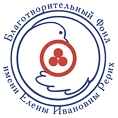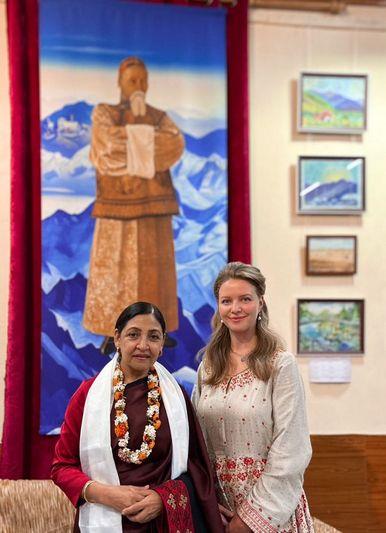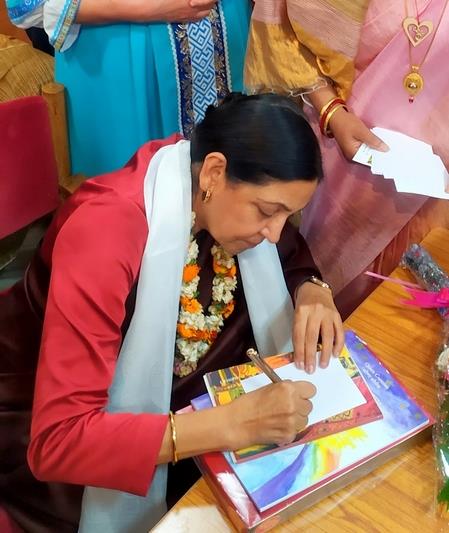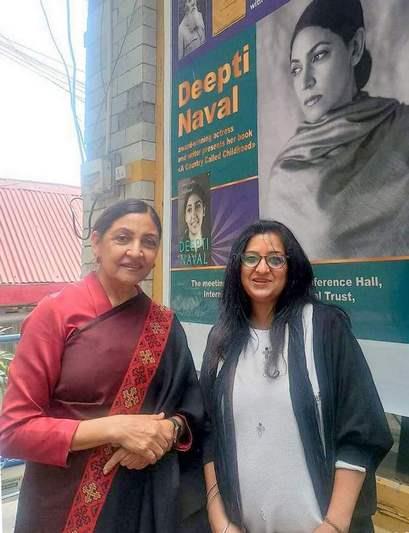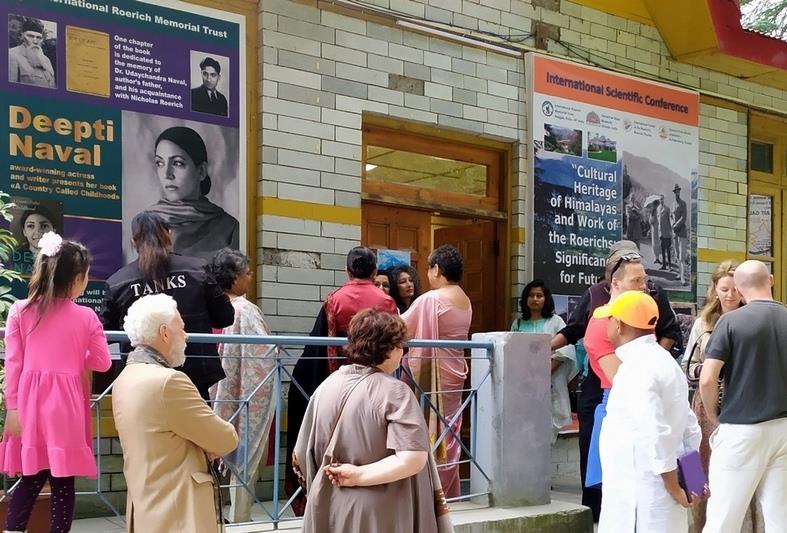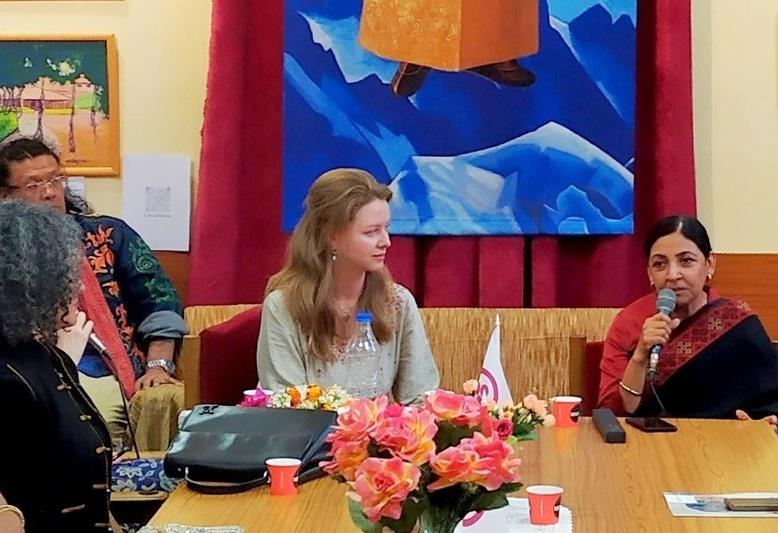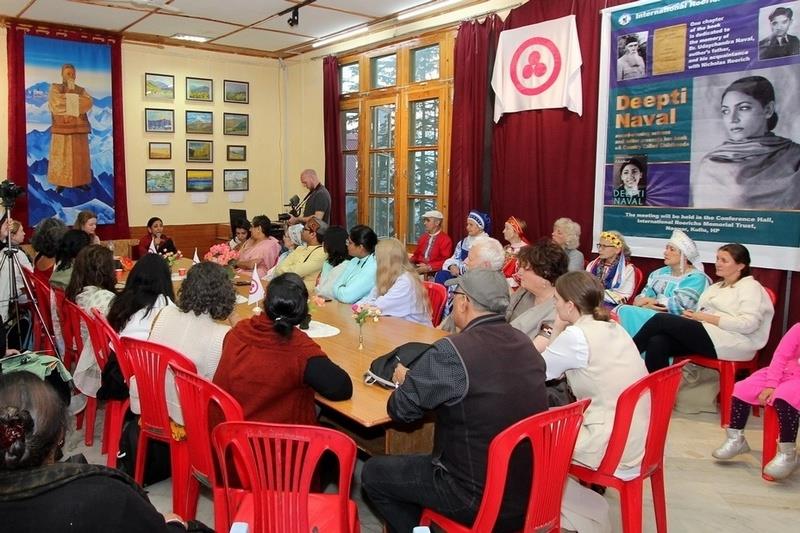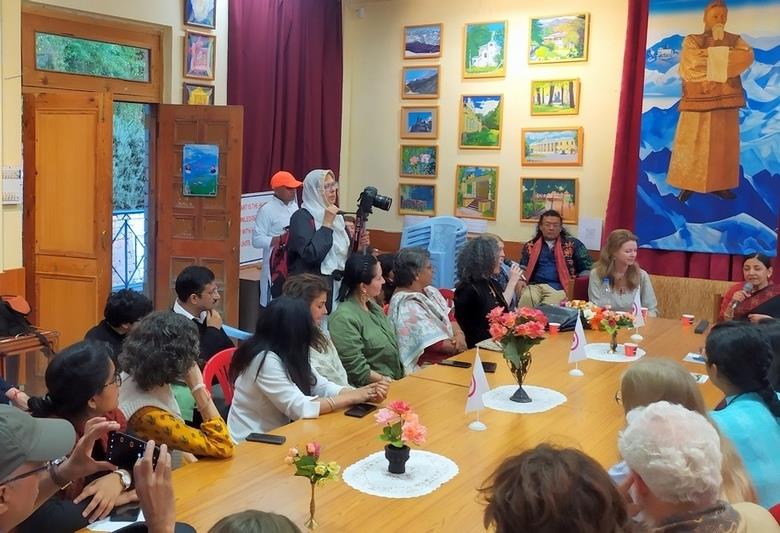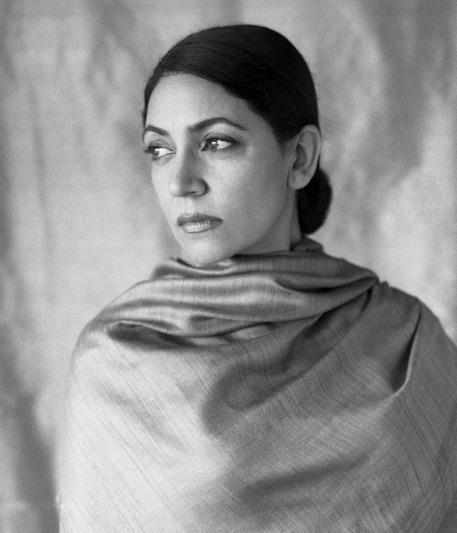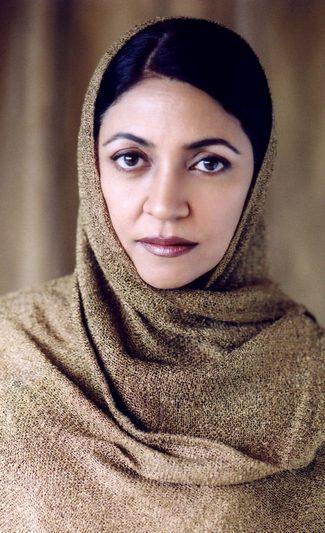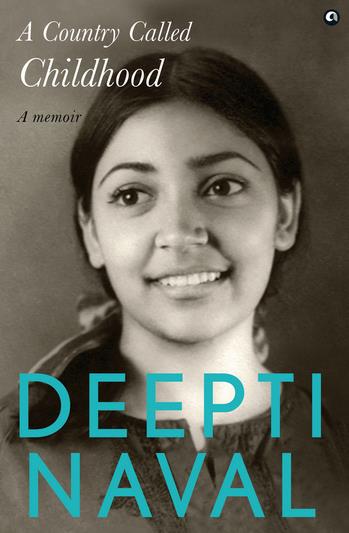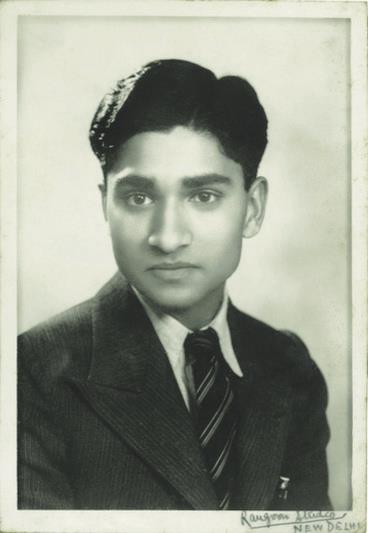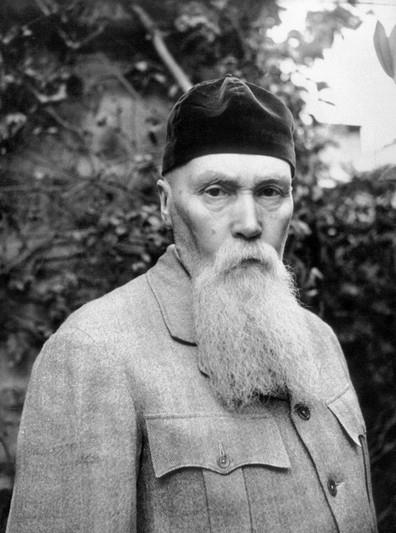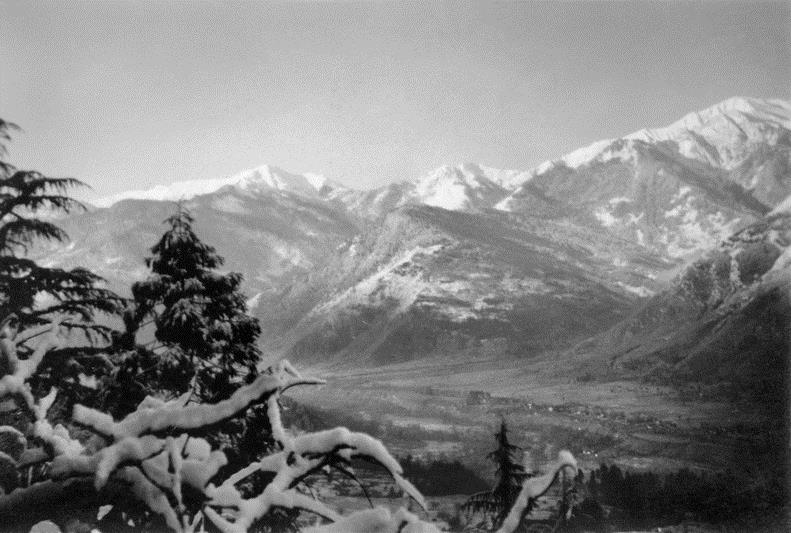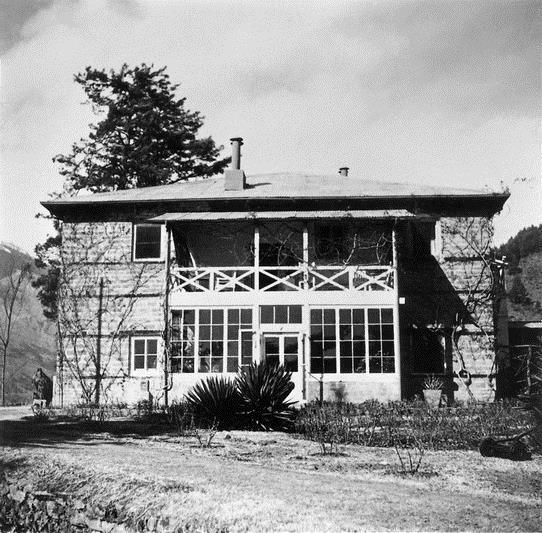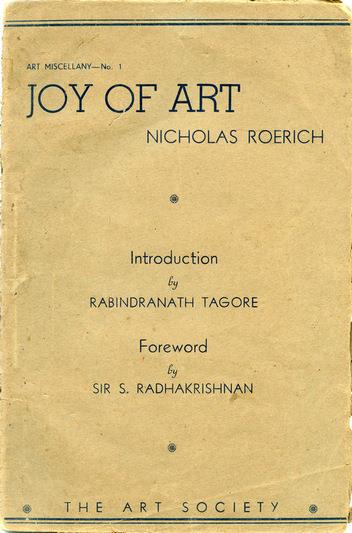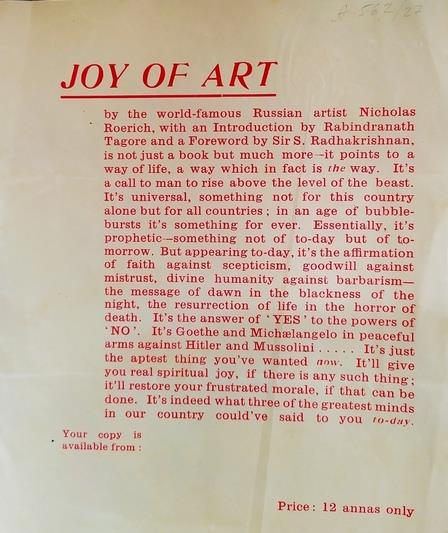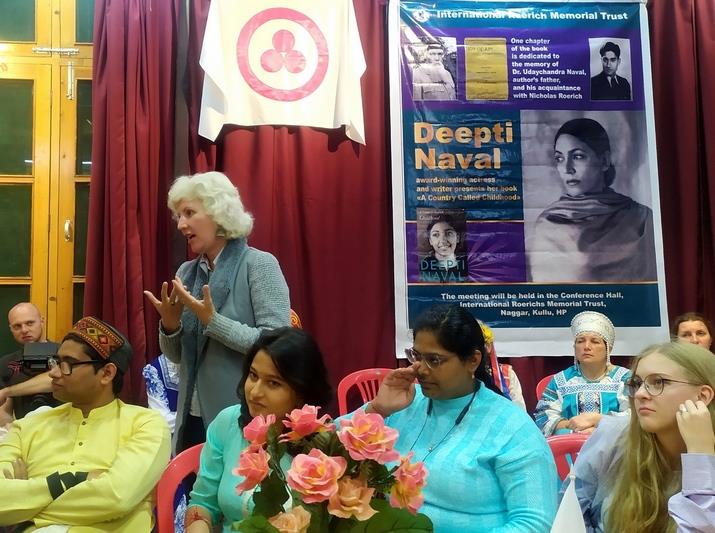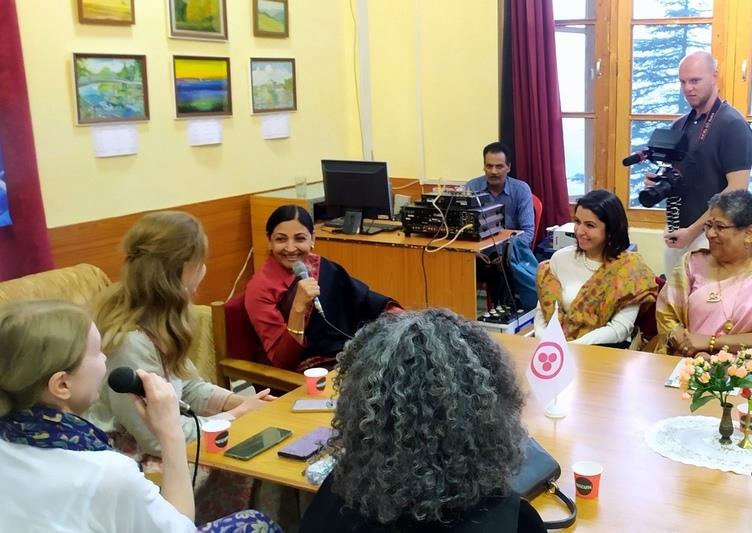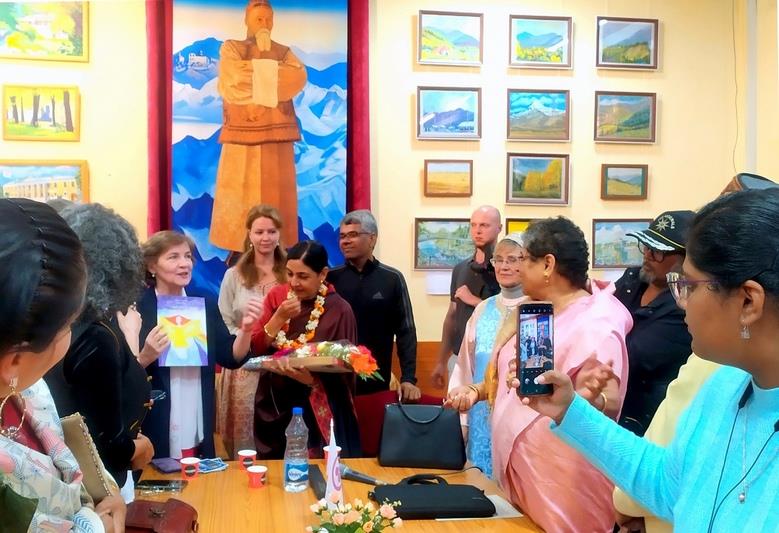Meeting with actress Deepti Naval at the Roerich Estate
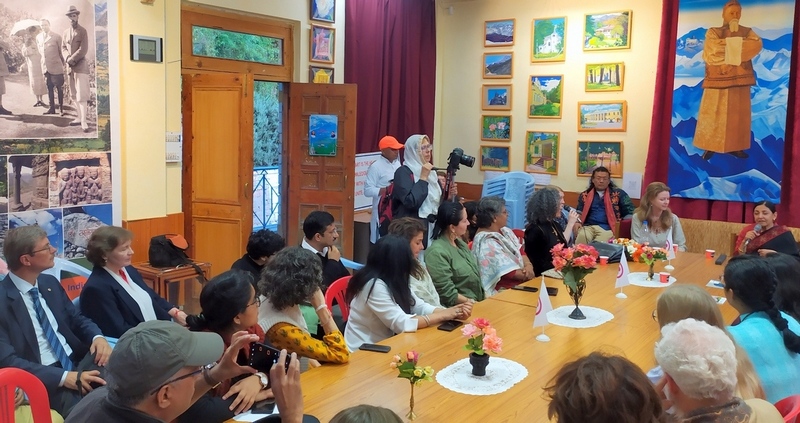
|
“The evening of the ninth of October. At the entrance to the Conference Hall stood a short stately woman in a beautiful red and maroon sari. It was at once clear that she was Deepti Naval. I was fortunate to have the chance to interview Ms. Deepti and ask her questions about her family, her films and her childhood.”
This is how Elena Ashikova, a guest from Russia and member of the Russian Family club ‘Semicvetik’ (Moscow), who acted as a host at the presentation of Deepti Naval's new book ‘A Country Called Childhood,’ described her first impression of the meeting with the famous Indian actress. The presentation took place at the International Roerich Memorial Trust on Nicholas Roerich's birthday, during the Russian-Indian Roerich Festival of Culture.
The meeting with Deepti Naval at the Roerich Memorial Estate was not accidentally held on the birthday of the Russian artist. The fact is that her father Udaychandra Naval was acquainted with Nicholas Roerich and throughout his life kept precious memories of visiting the Roerichs' house in Naggar. Deepti Naval has devoted pages of one of the chapters of her new book to these memories.
Ms. Naval began her journey as a film actress in 1980 when she made her movie debut in ‘Ek Baar Phir,’ and since then she has acted in over ninety films. Deepti Naval has received critical acclaim, audience love and international awards for her heartfelt and close-to-life female characters as well as for some of her directorial work.
A talented and multifaceted creative person, Ms. Deepti is known not only as an actress and director, but also as an artist and as a poet. Her oil on canvas works are of a distinctly expressionist nature. In her poems (three collections of her poems have been published), sometimes autobiographical, she expresses her feelings and reflections. As critics have written, her poems “carry the sound of a woman's direct and honest voice.”
‘A Country Called Childhood,’ Deepti Naval's new book, was released this summer and is already gaining recognition. Several excerpts were read by the author during the meeting in the IRMT Conference Hall and sparked the audience's sincere interest and admiration. “Our imagination instantly transported us to India in the late '50s,” says Elena Ashikova. “Deepti very expressively described her first memories; the places where she grew up; the people around her. Even the most ordinary things seemed magical to her at the time. Deepti spoke with particular warmth about her parents.”
One chapter of the book is dedicated to her father, Udaychandra Naval, a true “art enthusiast and seeker of beauty,” according to her daughter. As a young man he had studied English literature at a college in Lahore, and one day – it was 1941 – a friend invited him to visit Manali, a small town in the Kullu Valley. It was here that the young Udaychandra Naval heard of the Russian artist Nicholas Roerich, who had settled in Naggar with his family. The story of her father Deepti had once been recorded on a tape recorder, and this recording was included in its entirety in her book:
“I wrote to Roerich, requesting him for a meeting. Those days I was preparing to publish a small journal called ‘Joy Of Art’ and I thought it would be most exciting to have the Russian painter’s views on art for our first publication. Roerich’s answer came in the form of a handwritten note delivered by a Pahadi man.
I read the words over and over again.
‘Dear Uday,
I would be delighted to receive you at my home. Please do come to Naggar. Next Friday seems appropriate. You are likely to reach the valley by noon. Once you arrive at Patlikuhl there will be a mule waiting by the bridge to carry you up to the cottage. It’s quite a steep climb… and don’t forget to carry your overcoat. Me and my family shall be waiting for you to join us for lunch.’
The end of the yellow inland was signed in blue ink, the name: Nicholas Roerich.”
This trip to Roerich became a real adventure. The young man felt uncomfortable even imagining that he had to go to the Russian artist on a mule, it was somehow unaesthetic, especially since they were going to talk about art! He declined the offer and left Patlikuhl to visit the Roerichs on foot. He walked and walked, and reached the Roerichs' house when the family had already sat down to dinner without waiting for their guest. But the meeting went beautifully, everything was interesting and unusual for young Udaychandra. They talked with Nicholas Roerich about art and his travels in Asia until the night, and he was left for the night and put to sleep in Roerich's own pajamas, even though it was too big for him. Most importantly, the famous artist agreed to give Udaychandra Naval his essay on art for publication.
This essay, titled "The Joy of Art," was printed in the first issue of Art Miscellany, an art magazine, in the spring of 1942 (Amritsar, India). The introduction was written by Rabindranath Tagore, the preface by Sir S.Radhakrishnan. The editor-in-chief was Udaychandra Naval.
Interestingly, the archives of the Roerich Memorial Trust in Naggar contain a small yellow sheet of paper with a text entitled ‘The Joy of Art.’ Thanks to our acquaintance with Deepti Naval a few years ago and her story about her father, this humble document has found its legend. It turned out to be an advertisement for ‘The Joy of Art.’ The text was in all probability written by the editor of the publication, Udaychandra Naval:
“JOY OF ART
by the world-famous Russian artist Nicholas Roerich, with an introduction by Rabindranath Tagore and a Foreword by Sir S.Radhakrishnan, is not just a book but much more – it points to a way of life, a way which in fact is the way. It’s a call to man to rise above the level of the beast. […] Appearing to-day, it’s the affirmation of faith against skepticism, goodwill against mistrust, divine humanity against barbarism – the message of dawn in the blackness of the night, the resurrection of life in the horror of death. It’s the answer of ‘YES’ to the powers of ‘NO’.
It’s Goethe and Michelangelo in peaceful arms against Hitler and Mussolini... It’s just the aptest thing you’ve wanted now. It'll give you real spiritual joy, if there is any such thing: it’ll restore your frustrated morale, if that can be done. It’s indeed what three of the greatest minds in our country could’ve said to you to-day.
Your copy is available from:
Price: 12 annas only”
…The meeting with Deepti Naval ended with answers to numerous questions from the audience. “Of course, it was impossible not to mention Devika Rani,” recalls Elena Ashikova. “Someone asked if she had influenced Deepti's career. “Absolutely,” the actress replied. “Devika Rani was the first lady of Indian cinema. And you know, when I went on stage to receive my first award, it was given to me by Devika Rani.”
Amazing patterns are woven by life, patterns in which the past, present and future are sometimes intertwined in the most unexpected way for us. For the guests of the Memorial Roerich Estate from India, Russia, Belarus, Kazakhstan and other countries the meeting with the Indian actress, artist, writer and poet Ms. Deepti Naval became such a vivid pattern.

